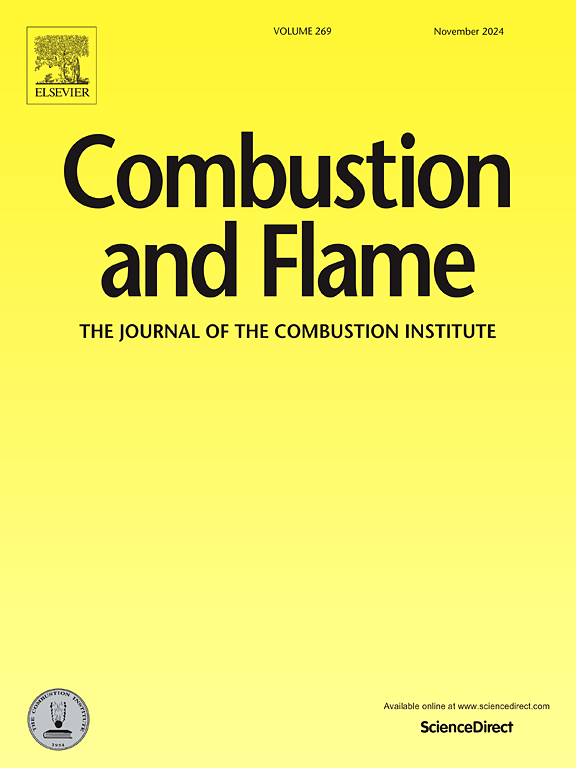Role of anions in the electrochemical modulation of flammability of ionic liquids
IF 5.8
2区 工程技术
Q2 ENERGY & FUELS
引用次数: 0
Abstract
The flammability and combustion of liquid fuels is very dependent on volatility. Although room temperature ionic liquids (RTILs) without metastable anions possess high energy density, they are often considered non-flammable due to their low vapor pressure. We have demonstrated that these thermally stable and seemingly non-flammable imidazole cation based RTILs without metastable anions can be made flammable by applying a voltage bias which generates volatile flammable gaseous species. Conversely removing the voltage bias terminates the generation of these gaseous species, rendering the liquid non-flammable again. Utilizing this concept, we extend our study to investigate the effect of different anions BF4−, ClO4−, NO3−, PF6− and CH3COO−, paired with the same 1-butyl-3-methylimidazolium cation. We find that the rate of gaseous species generation largely depends on the conductivity of the RTILs. RTIL with higher conductivity produces more gaseous species. However, we also found that despite generating reactive gaseous species, some RTILs can still remain non-flammable. Mass spectrometric analysis of the gaseous species generated during the electrochemical decomposition shows that if the species generated from anodic oxidation possess flame inhibition properties, they can interfere with the combustion of the flammable species generated at the cathode, making them non-flammable. Flammability of other RTILs that do not have inhibiting species generated at the anode can be modulated electrochemically.
求助全文
约1分钟内获得全文
求助全文
来源期刊

Combustion and Flame
工程技术-工程:化工
CiteScore
9.50
自引率
20.50%
发文量
631
审稿时长
3.8 months
期刊介绍:
The mission of the journal is to publish high quality work from experimental, theoretical, and computational investigations on the fundamentals of combustion phenomena and closely allied matters. While submissions in all pertinent areas are welcomed, past and recent focus of the journal has been on:
Development and validation of reaction kinetics, reduction of reaction mechanisms and modeling of combustion systems, including:
Conventional, alternative and surrogate fuels;
Pollutants;
Particulate and aerosol formation and abatement;
Heterogeneous processes.
Experimental, theoretical, and computational studies of laminar and turbulent combustion phenomena, including:
Premixed and non-premixed flames;
Ignition and extinction phenomena;
Flame propagation;
Flame structure;
Instabilities and swirl;
Flame spread;
Multi-phase reactants.
Advances in diagnostic and computational methods in combustion, including:
Measurement and simulation of scalar and vector properties;
Novel techniques;
State-of-the art applications.
Fundamental investigations of combustion technologies and systems, including:
Internal combustion engines;
Gas turbines;
Small- and large-scale stationary combustion and power generation;
Catalytic combustion;
Combustion synthesis;
Combustion under extreme conditions;
New concepts.
 求助内容:
求助内容: 应助结果提醒方式:
应助结果提醒方式:


